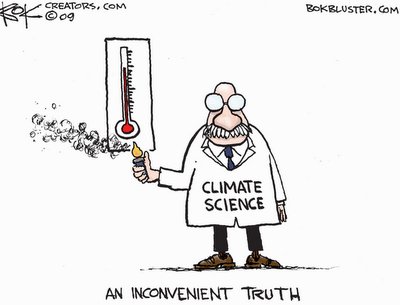|
from Real-Agenda Website
The Royal Society has released a new guide which outlines a retreat from its former vanguard stance on the threat of climate change and man-made global warming.
The decision to update their scientific
guide came after 43 of its members complained that the previous
versions failed to take into account the opinion of climate change
skeptics. The 19-page guide states clearly,
The guide continues stating,
In a Sept 20, 2010 article published on the UK Daily Mail, Professor Anthony Kelly, academic advisor to Britain’s Global Warming Policy Foundation (GWPF) explains,
The decision to revise and tone down its alarmist position on climate change demonstrates a clear u-turn on its previous 2007 climate pamphlet, one which is said to have caused an internal rebellion by the 43 fellows of the Society, triggering a review and subsequent revision.
The 2007 publication, which parroted the IPCC’s popular, but misleading impression that the ‘science is settled’ - made way for the new guide which accepts that important questions remain open and uncertainties unresolved.
Economic realities and a marked shift in public opinion since last year’s Climategate scandal and failure of the much-hyped UN Copenhagen Summit have triggered a series of falling dominos within the climate change and anthropogenic global warming (AGW) orthodoxy.
The Royal Society’s shift also follows
last week’s blow to the radical climatist agenda within Britain,
where the new Coalition Government announced it will be slashing its
Climate Change Department’s budget and folding the former
free-standing bureaucracy into the Treasury department.
In addition, this retreat by the Royal
Society signals a very real trend in climate science circles where
political activism is slowly being replaced by a more sober
assessment of the scientific evidence and ongoing climate debates.
The fuel for this engine has been supplied by short-term economic opportunities, most of which has been in the form of massive research grants, subsidies and feed-in tariffs (triggering a rise in energy costs to the consumer) by the State and confederate bodies like the UN and the European Union.
In the US, problems with climate change
inspired instruments like Cap and Trade are more chronic, where
North America’s sole carbon trading market, the Chicago Climate
Exchange (CCX),
has recently been scaled down following a decline in investment and
the near complete collapse in carbon emission prices.
If the IPCC’s elite chamber of scientists cannot be trusted to objectively measure past global temperatures (actual UN data sets show that there has been NO temperature increase since circa 1998), then it goes without saying that politicians cannot build real-world policy catering for a crisis that is not actually happening.
The rising tide of skepticism and the
reemergence of real scientific analysis will surely spell an end to
the innumerable faith-based policies and guesswork forecasting that
has plagued the climate change movement to date.
The reason for this phenomenon is spelled out in the basic laws of ‘political physics’; a collapse of the so-called “scientific consensus” comes into direct conflict with one of the main tenets of politics- plausible deniability.
When politicians can no longer use scientists as scapegoats, as in,
|

